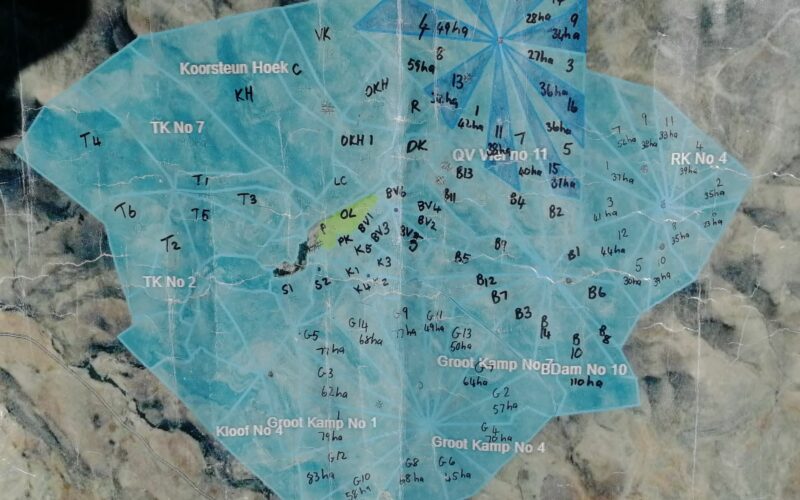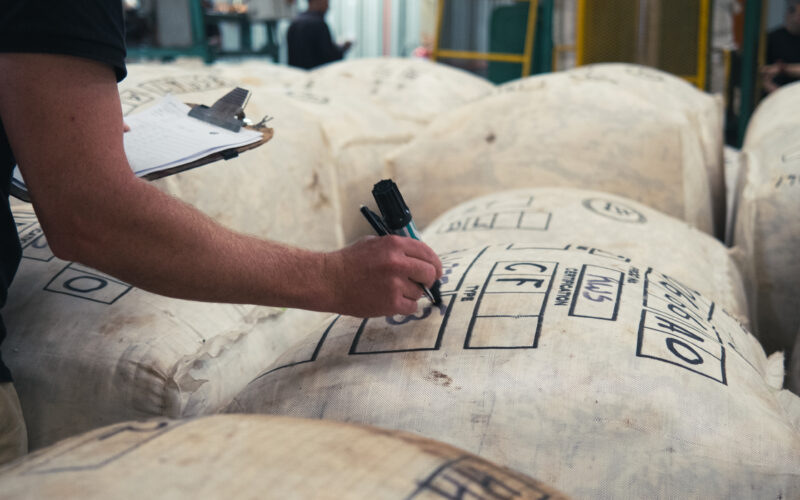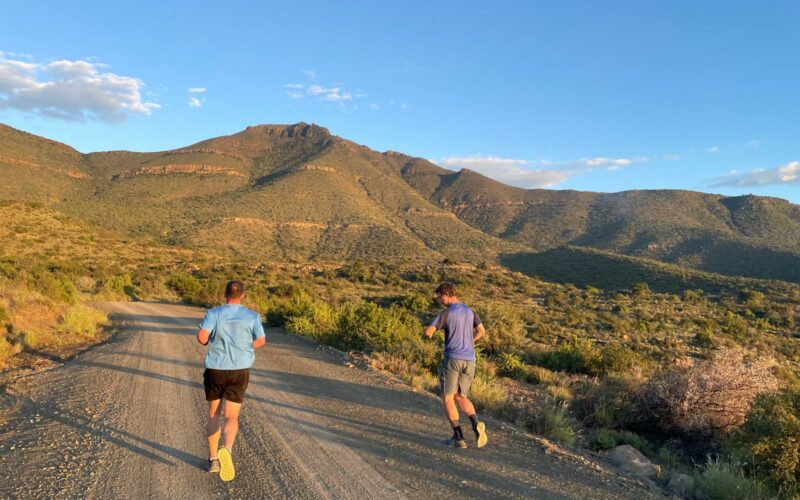Wool traceability has become a major issue in the textile industry, as it is subject to new regulations and also responds to consumer concerns.
The traceability of wool involves following its journey from shearing to the finished product, taking in all the stages of processing.
So why is traceable wool so important today? What are the benefits of this quest for traceability?
What are the expectations behind traceable wool?
The traceability of wool enables end consumers and brands to know the origin of the raw wool. By origin, we mean the country, the farms and all the players in the processing chain.
Thanks to a prior audit and by ensuring traceability, we can guarantee that the raw wool comes from breeders and has been processed by processors whose practices comply with the regulations and the social, environmental and animal welfare criteria laid down.
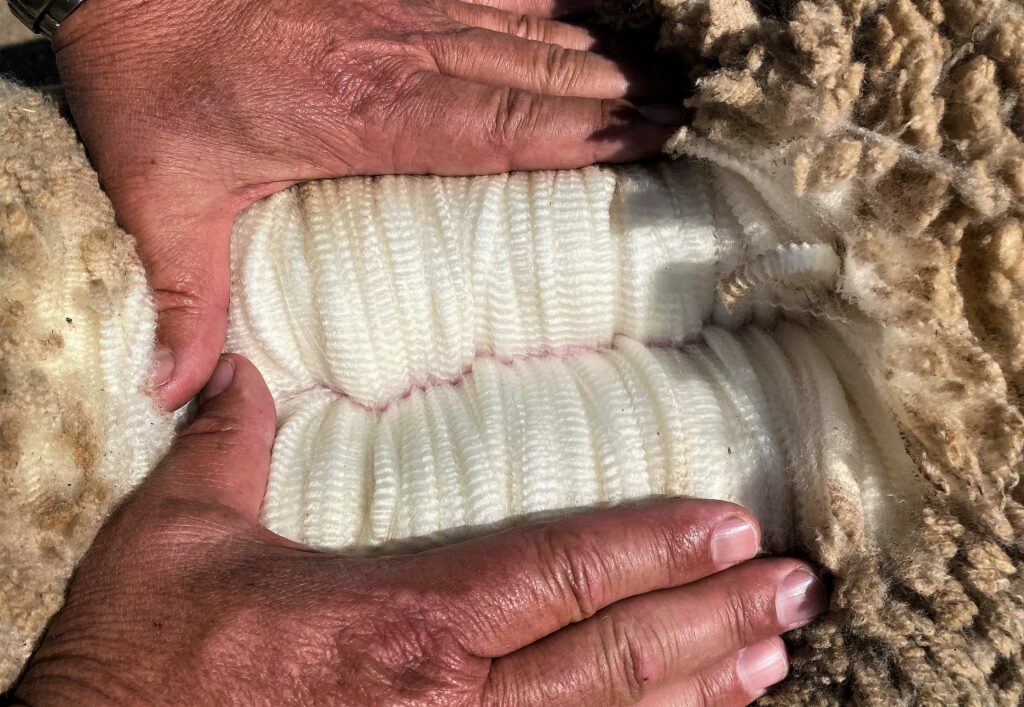
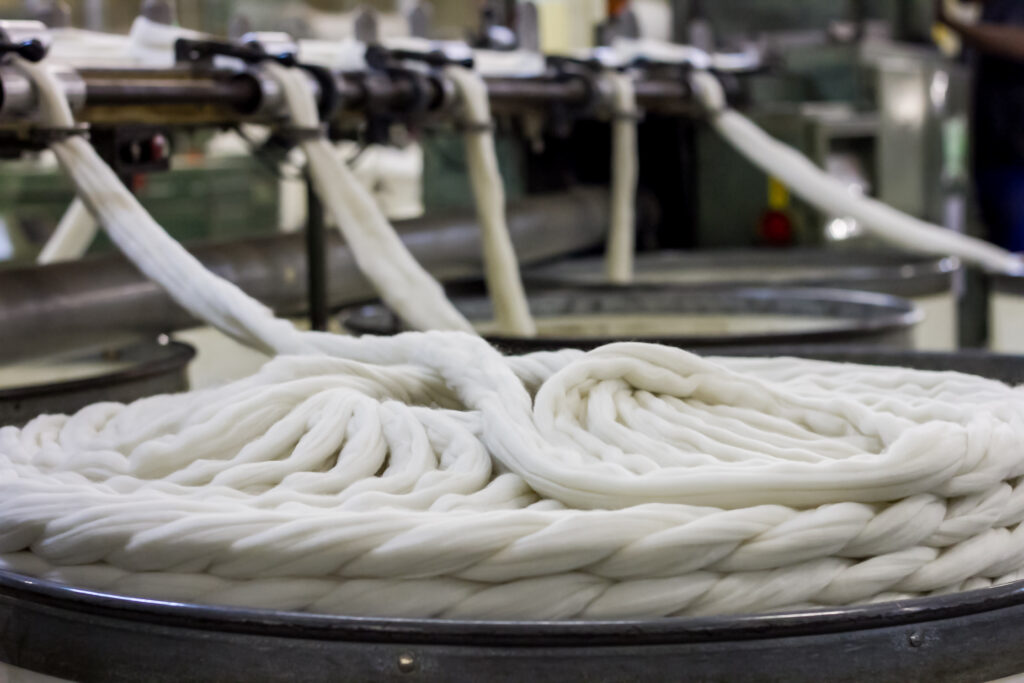
“In November 2022, we were contacted by one of our French customers. One of his Canadian final users, who had just bought a woollen t-shirt, wanted precise information about the origin of the wool in the t-shirt.
Thanks to the traceability system put in place at Segard Masurel throughout the processing chain and the information on the T-shirt label, we were able to trace the wool from the knitter back to the farmers who produced the raw wool and give them the origin of the wool.
A fine example of the traceability of our Abelusi wool“.
Vincent NICOLAS, Abelusi European Area Manager at Segard Masurel.
A lever for sustainable and ethical practices in the wool industry
The traceability of wool should encourage those involved in the wool industry to be more transparent and to improve their farming and processing practices. Traceable wool leads to improvements and compliance in good practice all the way to the farmer.
By having visibility over the entire value chain, it is easier to identify and analyse areas for improvement and thus to put in place more ethical and sustainable practices and behaviour.
For example, it is possible to reduce the environmental footprint of wool by encouraging regenerative farming practices among breeders, by rational resource management among manufacturers or by selecting processors according to the origin of the wool to reduce transport-related emissions.
Take, for example, the Mérinos d’Arles wool collected in the PACA region by Segard Masurel. All the processing stages – washing, combing and spinning – are located in a geographical area around the French and Italian Alps. The wool from the north of France travels to Belgium, Tourcoing and Germany for the same washing, combing and spinning stages.
This is what we call the “Fibre Road“.
Some labels guarantee wool traceability
Through its Abelusi label, Segard Masurel audits sheep farms on social, environmental and animal welfare aspects, guaranteeing, through this direct and privileged link, ethical and sustainable farming practices. The raw wool purchased is therefore fully traceable, from the farm to the combed sliver delivered to the spinning mill designated by the customer.
The Abelusi+ label expands on the audit criteria and guides the partner wool farmers towards regenerative farming practices to preserve and regenerate the soil, biodiversity, water, etc.
An independent body, SAMIC (South African Meat Industry Company), cross-checks and certifies these results, which are made available to the customer.
To find out more about the Abelusi+ label and traceability, go here > Abelusi Wool Label – Segard Masurel


